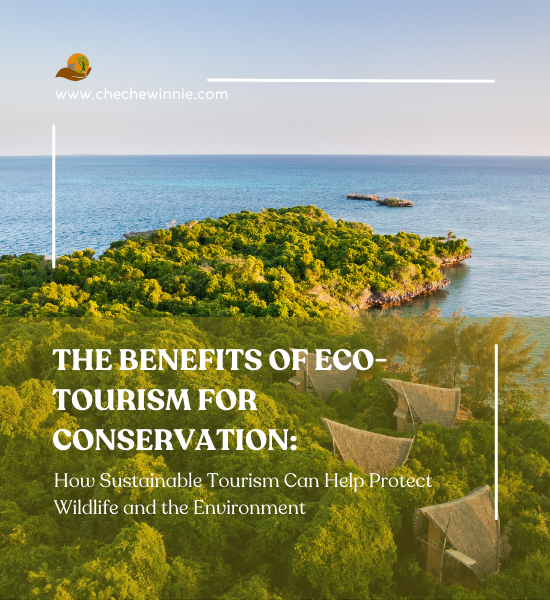As tourism continues to grow around the world, it is important to consider its impact on the environment and local communities.
Eco-tourism, also known as sustainable tourism, is a type of tourism that aims to minimize negative impacts and promote conservation efforts.
What is Eco-Tourism and How Does it Benefit Conservation Efforts?
Eco-tourism is a type of tourism that focuses on responsible travel to natural areas, with an emphasis on conservation, education, and sustainability.
By supporting eco-tourism, travellers can contribute to conservation efforts and help protect vulnerable species and ecosystems.
Eco-tourism also supports local economies and communities, providing economic incentives for conservation efforts.
The Economic Benefits of Eco-Tourism for Local Communities and Conservation Organizations
Eco-tourism can have a positive impact on local communities by providing employment opportunities and supporting local businesses.
This can be particularly important in developing countries where tourism can be a major source of income.
In addition, eco-tourism can provide financial support for conservation organizations, which can use the funds to protect wildlife and their habitats.
The Role of Eco-Tourism in Raising Awareness and Promoting Environmental Education
Eco-tourism can also play an important role in raising awareness and promoting environmental education.
By experiencing natural areas firsthand, travellers can gain a greater appreciation for the environment and the importance of conservation efforts.
Eco-tourism also provides opportunities for education and interpretation, with many tours and activities focusing on the natural history and ecology of the area.
Sustainable Tourism Practices: Minimizing Negative Environmental Impacts
To truly be considered eco-tourism, it is important that tourism activities minimize negative environmental impacts.
This includes minimizing waste and pollution, conserving natural resources, and respecting wildlife and their habitats.
Responsible eco-tourism operators prioritize sustainability and work to minimize their impact on the environment.
The Importance of Supporting Responsible Eco-Tourism for Conservation
While eco-tourism can provide many benefits for conservation efforts and local communities, it is important to support responsible and sustainable tourism practices.
This includes choosing eco-tourism operators that prioritize sustainability, respecting local cultures and customs, and following guidelines for responsible travel.
By supporting responsible eco-tourism, travellers can contribute to conservation efforts and promote a more sustainable future.
In conclusion
Eco-tourism can provide many benefits for conservation efforts and local communities.
By choosing responsible and sustainable tourism practices, travellers can help protect vulnerable species and ecosystems, while also supporting local economies and promoting environmental education.
Let us work together to support eco-tourism and promote a more sustainable future.

